Together, we’re transforming science with user-friendly, AI-enabled technology
Innovative research experiments often involve lengthy, multistep workflows that generate overwhelmingly large datasets.
Artificial intelligence-powered technologies relieve these burdens in two foundational ways: by streamlining intricate processes with automated decision-making and conducting robust data analysis with precision.
By driving workflow efficiencies and making complex analysis more accessible than ever, we're freeing researchers from tedious tasks so we can transform science, together.
Insider Insights
From our Insider Insights blog series, experts share both quick reactions and deep reflections on what it’ll take to transform science with AI and machine learning.
Dr. Misha Bashkurov Product Manager, Cellular Imaging
When it comes to artificial intelligence (AI), Misha embodies realistic optimism. He understands both its potential and current limitations and uses this perspective to fuel innovation.
Misha keeps our IN Carta Image Analysis Software evolving to meet the needs of today’s researchers. In this post—The Transformative Power of AI-Enabled Data Analytics—he explores how AI-powered data analytics has already fundamentally changed the way our customers interact with their data.

In the News
Recent announcements showcase partnerships, next-gen technologies, and expert perspectives on industry trends inspiring better science.

Technology Networks
AI Is Redefining the Role of the Scientist – Here’s How
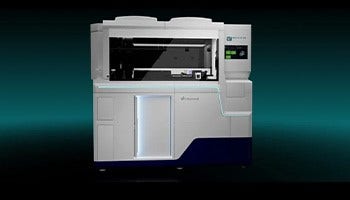
News Medical Life Sciences
Making Complex Cell Culture Easy and Efficient with AI
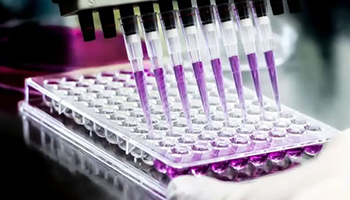
Drug Discovery World
Accelerating early-stage drug discovery
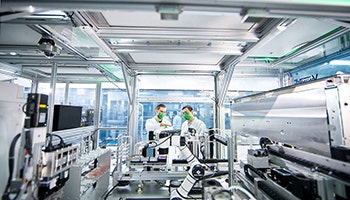
Genetic Engineering & Biotechnology News
AI Takes On Drug Discovery
Supporting the Science
From close collaborations to independent discoveries, we support scientists as they uncover new insights in complex biology.

Semi-automated, high-content imaging of drug transporter knockout
Research article describing use of IN Carta Image Analysis Software to generate a model that rapidly screen images captured by a high content imager, identifying sea urchin embryos, measuring their fluorescence for efflux assays, and counting their cell divisions.
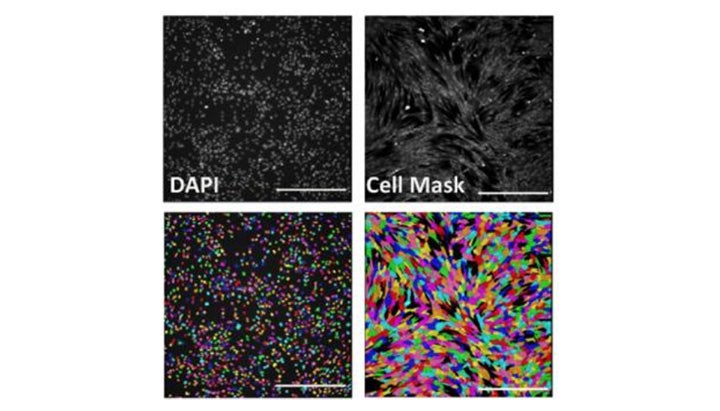
Senescence-associated morphological profiles (SAMPs): an image-based phenotypic profiling method for evaluating the inter and intra model heterogeneity of senescence
Research paper showing how IN Carta Image Analysis Software was used to analyze images from senescence models, generating nuclear and cellular masks for data analysis based on 62 features. Data normalization and standard score profiles were created, with results visualized as heat maps to indicate significant changes in features.
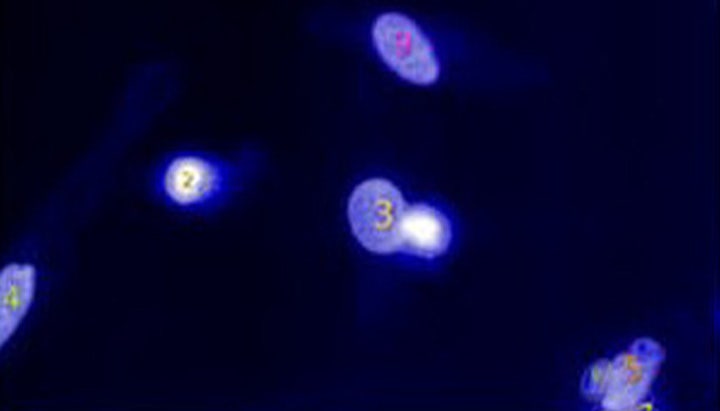
High-Throughput Image-Based Aggresome Quantification
Research article showing how IN Carta Image Analysis Software was utilized to analyze images using the Phenoglyph module, which employs a machine learning-based method to classify cells with and without aggresomes based on texture measurements in the cytoplasm.
Catalyzing Breakthroughs with Innovative Technology
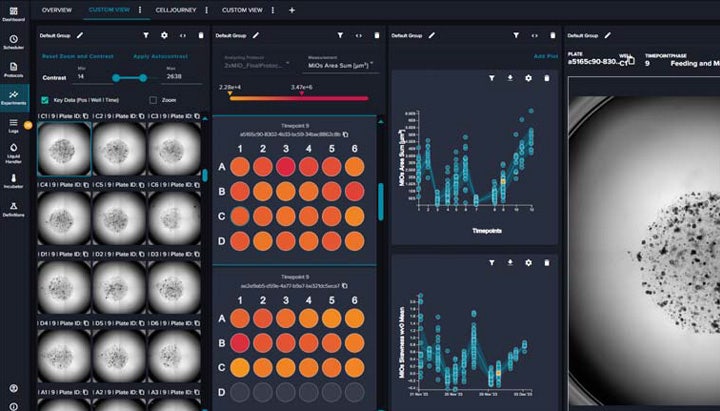
Machine Learning-Enabled Decision Making for Cell Culture
For What's Next: Standardizing the cell growth expansion process to remove variability, maintain sterility, and increase confidence in results.
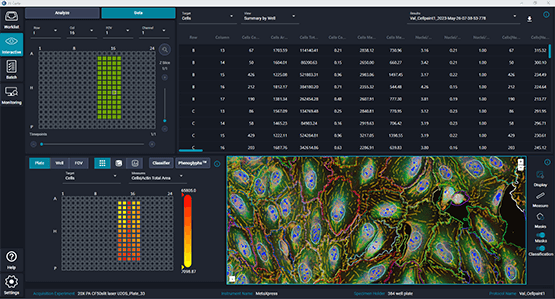
AI-Enabled IN Carta Image Analysis Software
For What's Next: Turning images into insights with powerful AI and an easy-to-use interface.
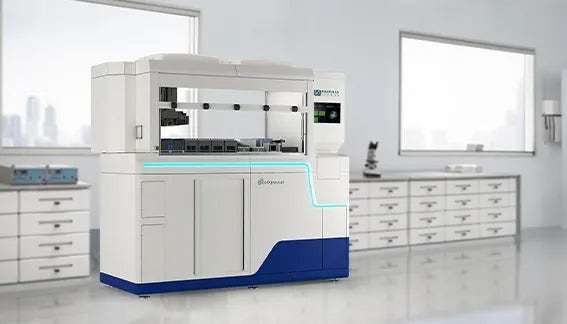
CellXpress.ai® Automated Cell Culture System
For What's Next: Boosting in-house organoid production by up to 25 times compared to culturing cells by hand.*
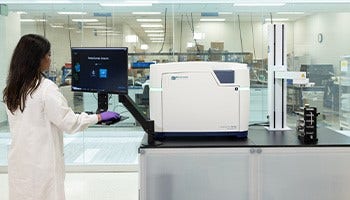
ImageXpress® HCS.ai High-Content Screening System
For What's Next: Imaging an entire 384-well plate for 3D volumetric analysis within 25 minutes.
*Based on a comparison of what a single FTE could generate over 19 days vs. the CellXpress.ai system.


